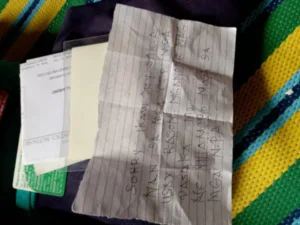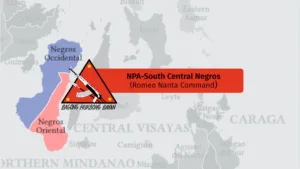
By CPP Information Bureau
The Communist Party of the Philippines (CPP) lambasted the Aquino and US governments for provoking conflicts in the South China Sea for the past two years by “issuing bellicose anti-China statements, conducting naval manuevers and power projection operations right next to the disputed areas, and increasing US military presence in the Philippines.“
“It is a patent lie by the US imperialists and their puppets in the Aquino regime to claim that the ongoing Balikatan exercises (US-RP joint military exercises) have nothing to do with the South China Sea conflict,” said the CPP.
“The naval exercises and manuevers by the US military in the previous months and presently under the Balikatan series have everything to do with the brewing conflicts over the sovereignty claims regarding the Spratlys and Scarborough Shoal.”
The CPP denounced Lieutenant General Duane Thiessen, commander of US Marine Forces-Pacific, for “further stoking the disputes by asserting that the US is obliged to get involved in the armed conflict in accordance with the Mutual Defense Treaty of 1951.”
An article published in China’s People’s Liberation Daily asserts that US presence in the Philippines is creating conditions that raise the risks of armed confrontations over the South China Sea conflicts.
“The Balikatan exercises and increased American military presence in the Philippines in the past several years have sidetracked peaceful multilateral negotiations and compelled China to carry out preemptive maneuvers to put up a naval shield against US encroachment.”
“The Obama and Aquino governments have been stepping up the South China conflicts since the third quarter of 2010 with the successive docking of USS George Washington and other warships in the Philippines and high-level visits by key American security officials,” said the CPP.
“In May 2011, Aquino himself was summoned to the US warship Carl Vinson to be briefed by key American officials. Since then, his foreign affairs, security and military officials have engaged China in a diplomatic and political wrestling match, whipping-up anti-China statements.”
“Aquino and his ilk project themselves as super-patriots who are ready to oppose China to defend Philippine claims over the Spratlys even as they prostrate themselves before their US imperialist masters,” the CPP added.
“It is plain to see that the increased US military presence in the region is meant to encircle China and put increasing pressure on it to further open its economy to US capital investments and commodities, dismantle and privatize its state-supported enterprises and make it more compliant to US economic, political and foreign policy dictates.”
“Setting up such an American military perimeter around China seeks to control and set limits on China’s growth as an economic, political and military power.”
In a statement issued over the weekend, the CPP said “It is a matter of principle for the Filipino people to assert national sovereignty and territorial integrity over the Spratly Islands and the Scarborough Shoal. It is also a matter of principle for the Filipino people to demand a peaceful resolution of the conflicting claims through diplomatic negotiations on the basis of equality, respect and mutual benefit.”
The CPP identified three key elements to achieve peaceful resolution of conflicts in the South China Sea.
For the Chinese government to stand down, put an end to its aggressive posturing, pull back its armed patrol ships from the Scarborough Shoal, and recognize and respect existing international agreements including the Declaration of Code of Conduct which it signed with other ASEAN countries in 2002 calling for the peaceful resolution of the sovereignty disputes through multilateral negotiations.
For the US government to pull out all its interventonist troops in the Philippines, put an end to the so-called joint military exercises and cease all power projection activities in the South China Sea including the rotational docking of large American aircraft carriers in the Philippines, Singapore and Australia.
For the Aquino government to stop insisting on US interference and getting the US to support the Philippine claim by building up its military presence in the country and in the South China Sea region. Such posturing of the Aquino regime reveals its hypocrisy and makes a mockery of international multilateral mediation processes.
The CPP said “the most crucial and key element” is the demand for the US to put a stop to its interventionism in the Philippines and the Asia-Pacific. “Otherwise, if the US government continues asserting its ultra-national right to intervene in the region, it would be impossible to achieve a peaceful resolution of the South China Sea disputes.”
“US imperialism has been building up its US military presence in the Philippines and Asia-Pacific region in recent years, especially since 2010. US government declarations of an “American Pacific century” late last year has further boosted US military thrusts into the Philippines and the South China Sea region.
“US military troops should be pulled out of the Philippines. Their presence and interference in Philippine domestic affairs comprise military intervention and violate Philippine sovereignty,” said the CPP.
“Furthermore, it provides the compulsion for China to make aggressive claims of sovereignty over areas which it views as part of its international perimeter,” pointed out the CPP. “As an international capitalist power with strong claims of national sovereignty, China will not sit back and allow the US to encircle it.”
“China’s aggressive posturing regarding the Scarborough Shoal conflict may be construed as showing imperialist tendencies and should be criticized as such. China should be reminded that its pugnacious attitude regarding the Spratlys and Scarborough Shoal tends to provoke hostilities,” added the CPP.
“China can set itself apart from the US imperialists by projecting itself as a humble giant. It would serve China more if it instead sought alliances and built solidarity with the Filipino people through deepgoing cooperation,” said the CPP. “It can also build solidarity with ASEAN countries and boost a region-wide clamor for neutrality and demilitarization and the pullout of all US troops from the Philippines, Australia, Japan, Taiwan, South Korea and in the entire Asia-Pacific region.”












